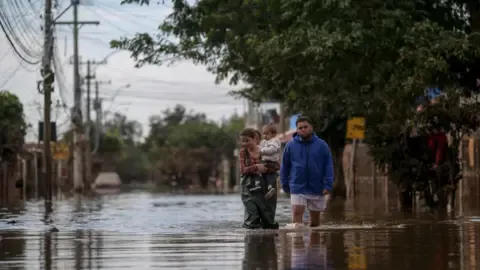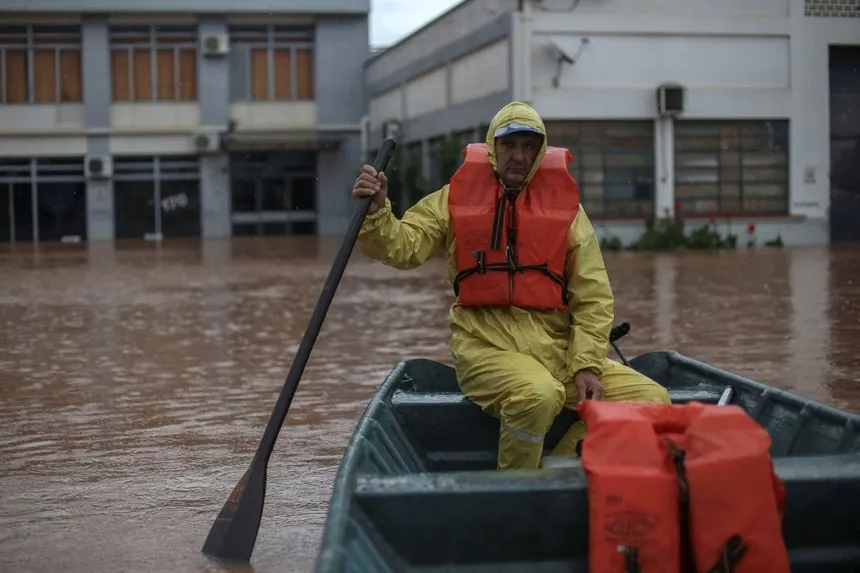Rio Grande do Sul, a southern Brazilian state, is reeling from a ferocious rainstorm that has left a trail of destruction and devastation across its cities and towns. The disaster, described by Governor Eduaro Leite as a “biggest ever climate catastrophe,” has claimed 90 lives, injured 361 people, and left 131 missing, with over 48,000 displaced and living in shelters.
The state capital, Porto Alegre, has been particularly hard hit, with the Guaíba river bursting its banks and flooding vast areas of the city, including the main airport. According to authorities, the waterway reached a record level of 5.33 meters, even higher than during historic floods in 1941.
Porto Alegre has been left without access to basic services such as water, electricity, and food, with residents forced to wade through chest-deep water to reach higher ground. Local journalist Rodrigo Lopes captured the eeriness of the situation in a video, paddling through normally bustling streets in a canoe, past a flooded shopping center and bank.
The city, with a population of 1.4 million, has been devastated, leaving its residents with little more than the clothes on their backs. “The heart of Porto Alegre is wounded,” wrote Lopes, as he navigated the coffee-colored waters.
Four major highways connecting the capital to the rest of the state have been blocked, and the stadiums of the region’s two biggest football teams, Grêmio and Internacional, have been submerged, forcing the clubs to suspend matches. The state transport secretary, Juvir Costella, warned motorists not to venture onto the roads unless absolutely necessary, describing the state as “chaos.”

Across Rio Grande do Sul, an estimated 1.3 million people have been affected by the disaster, with authorities scrambling to deliver aid and support to those in need. A local photographer, Jefferson Botega, described catastrophic scenes of destruction in the badly hit municipality of Vale do Taquari, saying that houses looked like “toys that a child had pulled apart.”
Governor Leite has called for a Marshall Plan-style reconstruction package to deal with the aftermath of the disaster, acknowledging that the state is facing a “war-like situation.” However, there are growing questions over Porto Alegre’s lack of preparations for flooding, with local authorities accused of failing to invest in flood prevention measures.
Government officials have been criticized for their response to the disaster, with opposition politicians calling for greater support for those affected. Erika Hilton, a prominent left-wing politician, stated that the lack of investment in flood prevention had exacerbated the crisis, leading to avoidable tragedy and loss of life.
As the state struggles to come to terms with the devastating impact of the disaster, there is little indication that the crisis is near its end. Authorities warn that the floodwaters will soon move to surrounding areas, displacing more residents and causing further destruction. Meanwhile, weather forecasters predict new storms and heavy rain in the region, ensuring that the people of Rio Grande do Sul will continue to face a long and difficult road to recovery.

